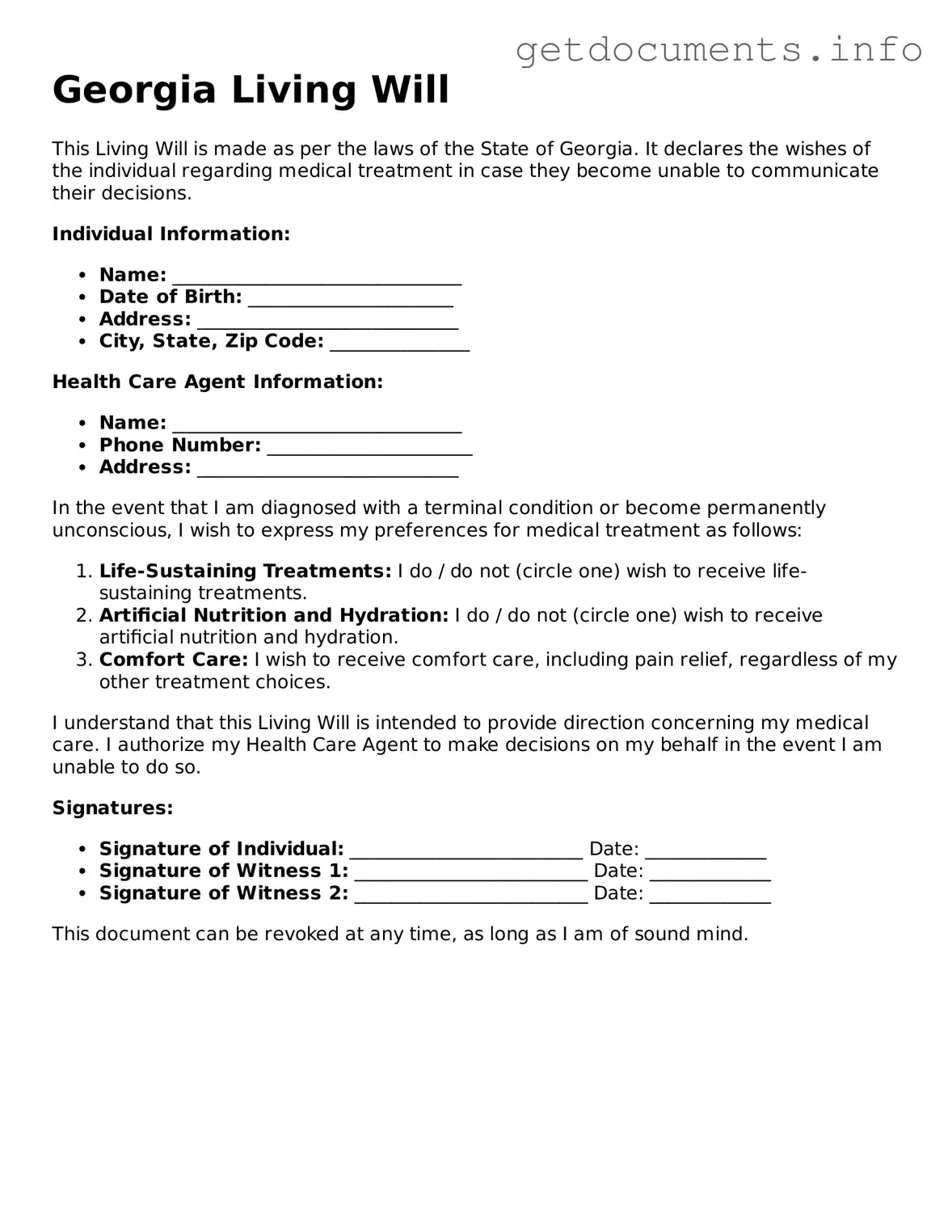Free Living Will Template for Georgia
A Georgia Living Will form is a legal document that allows individuals to outline their preferences for medical treatment in the event they become unable to communicate their wishes. This form ensures that your healthcare choices are respected, providing clarity to family members and medical professionals. To take control of your healthcare decisions, consider filling out the form by clicking the button below.
Access Living Will Editor

Free Living Will Template for Georgia
Access Living Will Editor
Got places to be? Complete the form fast
Fill out Living Will online and avoid printing or scanning.
Access Living Will Editor
or
⇩ PDF File
